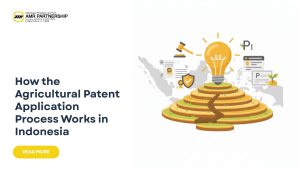
Plant breeding is a cornerstone of agricultural innovation. But what protects the intellectual investment of plant breeders? The answer lies in Plant Variety Protection (PVP). If you’ve ever asked, what is plant variety protection and how it impacts breeders and businesses, you’re not alone. In this comprehensive guide, we explore the legal frameworks, global practices, and how expert legal support from AMR can protect your plant-related intellectual property.
READ MORE: ASEAN Plant Protection Sees Progress as Cambodia Activates Variety Registration in 2024
Understanding Plant Variety Protection (PVP)
Plant Variety Protection (PVP) refers to a form of intellectual property right (IPR) that grants exclusive control to breeders over the propagating and harvesting material of a new plant variety for a number of years. It allows breeders to benefit financially from the commercialization of their new varieties while encouraging the development of more productive and resilient plant types.
Defining PVP According to UPOV
According to the International Union for the Protection of New Varieties of Plants (UPOV), a new plant variety is eligible for protection if it is:
- Distinct: Clearly distinguishable from existing varieties
- Uniform: Consistent in its essential characteristics
- Stable: Characteristics remain unchanged after repeated propagation
- New: Not yet commercially exploited before a defined time frame
These four criteria are known as the DUSN standards. UPOV’s model of protection is internationally recognized and forms the foundation of most national plant variety protection laws.
Why PVP Matters
PVP encourages innovation in the agricultural sector. It provides breeders with a legal framework to license or sell their varieties, which in turn drives competition, sustainability, and food security. It also ensures that agribusinesses and seed companies can invest in R&D with the assurance that their creations are protected.
Key Legal Frameworks Around the World
To fully grasp what is plant variety protection, it’s important to understand how different jurisdictions structure their legal systems. Global variations affect eligibility, scope of protection, duration, and enforcement mechanisms.
The UPOV Convention (UPOV 91 vs UPOV 78)
UPOV established its first convention in 1961, with major revisions in 1978 and 1991. Countries that sign onto UPOV adopt either the 1978 or 1991 Act:
- UPOV 1978: Offers a narrower scope; does not allow protection over harvested material in most cases.
- UPOV 1991: Broader and stronger rights, including provisions for harvested material and essentially derived varieties (EDVs).
Under UPOV 1991, breeders have the exclusive right to authorize the production, reproduction, conditioning for propagation, offering for sale, selling, and importing/exporting of the protected variety.
The US Plant Variety Protection Act
The United States enacted its Plant Variety Protection Act (PVPA) in 1970, administered by the Plant Variety Protection Office (PVPO). The PVPA allows for protection of sexually reproduced and tuber-propagated plant varieties.
Key features:
- 20-year protection (25 for trees and vines)
- Farmers’ exemption for saving seeds (with limitations)
- Strong enforcement through federal court actions
The European Union System
In the EU, plant varieties are protected by the Community Plant Variety Office (CPVO). Rights are granted under a single system that applies to all member states.
Highlights:
- 25-year protection (30 for vines and trees)
- Simpler single-application process for the EU
- No farmers’ exemption unless permitted under national law
Japan and Australia
Both countries have mature PVP systems harmonized with UPOV 1991. Japan’s Seed and Seedling Law and Australia’s Plant Breeder’s Rights Act offer protection over new varieties, with strict enforcement and regular legal updates.
READ MORE: Who Governs Intellectual Property Rights in Indonesia? Key Authorities, Regulations, and Their Roles
Plant Variety Protection in Indonesia
Indonesia regulates PVP through Law No. 29 of 2000 on Plant Variety Protection, under the supervision of the Center for Plant Variety Protection and Agricultural Licensing (PPVTPP).
Who Can Apply?
According to the law, the following entities can apply for PVP:
- Individual plant breeders
- Legal entities (e.g., companies, research institutions)
- Foreign applicants with local representatives
Registration Procedure
- Application Submission: Includes documentation of the variety’s characteristics.
- Examination: Technical and administrative evaluation for DUSN.
- Publication: Public announcement for objections.
- Certificate Issuance: Valid for 20-25 years depending on the plant type.
This process ensures transparency and legal certainty, promoting both breeder innovation and public trust.
Rights and Obligations
Holders of PVP certificates in Indonesia are entitled to:
- Exclusive rights to produce and commercialize the variety
- Protection against unauthorized use
However, they must also:
- Maintain the stability and uniformity of the variety
- Allow for compulsory licensing if the public interest demands
READ MORE: When Was Intellectual Property Law Enacted in Indonesia? History and Development
Benefits of PVP for Plant Breeders and Businesses
Understanding what is plant variety protection also involves recognizing the practical advantages of securing these rights.
Commercialization
Breeders can license their varieties to seed companies, earn royalties, or enter exclusive distribution agreements. Legal protection boosts market confidence and allows for structured negotiations.
Market Exclusivity
With exclusive rights, PVP holders can prevent competitors from reproducing or selling their protected variety. This enables better brand positioning and long-term business planning.
Stimulating Innovation
By offering legal and financial rewards, PVP incentivizes R&D investment in agriculture. Breeders can take calculated risks in developing improved crop varieties, including climate-resilient or pest-resistant strains.
READ MORE: How Does Copyright Work? A Step-by-Step Guide for Content Creators
Challenges and Limitations of PVP
Despite its many advantages, PVP systems face challenges that limit their reach and effectiveness.
Diverse Legal Systems
Variations in national laws, treaty accessions (UPOV 1978 vs 1991), and enforcement capacity can create legal uncertainty—especially for businesses operating across borders.
Registration Costs and Enforcement
- Application and examination fees can be high
- Enforcement requires legal expertise and resources
- Smaller breeders may lack capacity to monitor misuse
Ethical and Access Issues
Critics argue that strict PVP regimes may limit smallholder farmers’ access to seeds, especially in developing countries. This is an ongoing policy debate in Indonesia and beyond.
READ MORE: How Long Is Intellectual Property Valid For? Duration of Copyright, Patents, and Trademarks
How IP Law Firms Can Help with Plant Variety Protection
Navigating the regulatory, legal, and commercial dimensions of plant variety protection is not simple. IP law firms like AMR Partnership, with decades of experience and international reach, can guide clients through every stage of the process.
Legal Consultation
Understanding the eligibility of your plant variety and selecting the correct jurisdiction requires strategic foresight. Our expert team at AMR offers in-depth legal consultation tailored to your business model.
Local and International Filing
AMR assists clients in preparing DUSN documentation, submitting to the appropriate authority (PPVTPP in Indonesia), and managing cross-border protection strategies through the UPOV system.
Enforcement and Litigation
Should your rights be infringed, our litigators are prepared to enforce your PVP via administrative remedies or civil court proceedings. With more than 30 years of experience, AMR is your trusted partner in defending plant IP rights.
Whether you’re a start-up agri-biotech firm, a local plant breeder, or an established enterprise, securing plant variety rights is a strategic move. Partner with AMR to ensure your innovation is protected, commercialized, and respected.
- Phone (Hunting): +62-21-29036668
- Fax: +62-21-29036672 to 75
- WhatsApp Customer Service: Click here to chat
- Instagram: @amrpartnership
- TikTok: @amr.partnership
- Facebook: Law Firm AMR Partnership
- Official Website: www.amr.co.id






